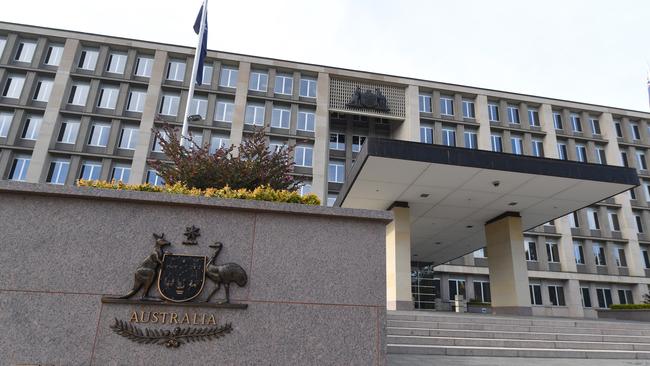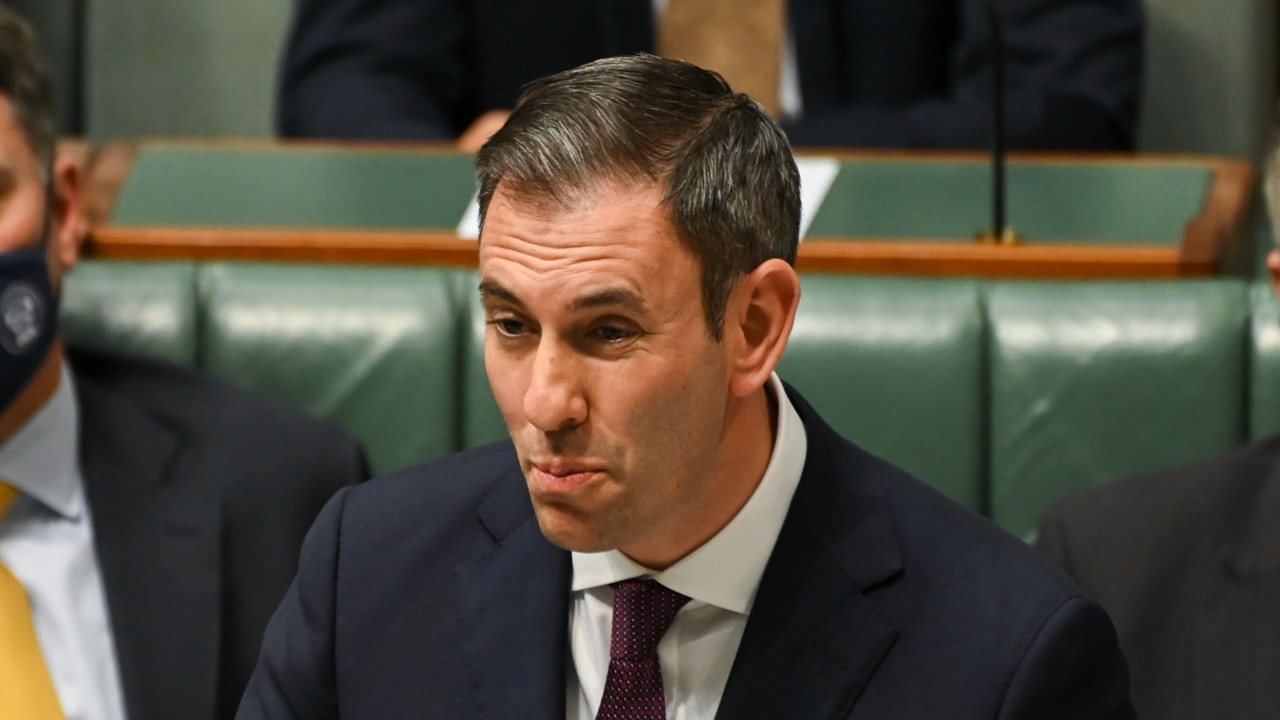Treasury warns Labor’s franking credits crackdown could be seen as a tax hike or ‘winding back’
Labor’s proposed $600m integrity crackdown on franking credits could be deemed to be a tax increase, Treasury has conceded in documents released under FOI.

Treasury has conceded that the Albanese government’s proposed $600m integrity crackdown on franking credits could be deemed to be a tax increase and a winding back of the dividend imputation system, according to internal documents released under freedom of information.
It has also revealed Treasury officials were aware of significant public concern about the new tax laws outlined in more than 2000 submissions from the public on the controversial legislation.
Despite those concerns, the government introduced a bill to parliament on Tuesday that would close what it claims are loopholes in the system that are a drag on the budget. The bill was on Wednesday referred to a Senate committee.
The concerns raised by Treasury last November, following the October budget, about the “sensitivities” of the changes, were contained in talking points for Treasury officials appearing before Senate estimates hearings.
Franking credits, which were established by former Labor prime minister Paul Keating to stop double taxation on profits, are now claimed by more than 3.1 million mum-and-dad investors and retirees, according to Treasury, at a cost to the budget of about $17bn in 2019-20. The majority of recipients are over 50.
The bulk of the total $67bn in franking credits distributed by Australian companies in 2020 went to superannuation funds, other companies and charities.

“There were significant concerns raised by the public,” said the Treasury document released under FOI to the opposition. “Over 2000 submissions were received, the majority of which were pro-forma submissions from individuals who were encouraged to submit by certain commercial asset managers. Concerns were raised over retrospectivity, policy objective and potential for the legislation as drafted to capture legitimate commercial practices. Treasury is considering the issues raised.”
The government claims the integrity measures, which the former Coalition government initially had sought to pursue before shelving them, are designed to prevent franking credits from being paid through capital raisings which would save the budget about $10m a year.
More significantly they also crack down on companies using favourable tax treatment for off-market share buybacks (OMSBB) with attached franking credits, which will save the budget $550m over the next five years.
“Shareholders who benefit most from the franking credits attached to an OMSBB may argue the policy is effectively a tax increase or a winding back of dividend imputation,” the Treasury talking points went on to say.
“Companies can still return excess capital to shareholders by paying special dividends with franking credits attached. Shareholders will continue to benefit in full from franking credits, including refundability.”
The Albanese government has argued that these were modest integrity measures and that it was not a dismantling of the dividend imputation system. People would still be able to benefit from franking credits.

Treasury noted that the more than 2000 public submissions the proposed legislation had attracted – a high number for a single piece of legislation – raised “significant” concern.
Assistant Treasurer Stephen Jones said the Albanese government had consulted “in the normal way on the details of this bill”.
“We took into consideration all of the matters raised, including the significant number of campaign replies … These measures are targeted at big companies and institutional investors finding loopholes in our tax system,” Mr Jones said.
“The vast majority of investors will be completely unaffected, and will continue to receive their franked distributions.”

The opposition has accused the Albanese government of breaking an election promise as Anthony Albanese pledged before the 2022 election that Labor had no plans to touch franking credits.
Opposition Treasury spokesman Angus Taylor said: “Every day Australian retirees who have worked hard their entire lives are recipients of franking credits. This is not a tax on the super wealthy. Make no mistake, this is a tax increase on older Australians. The Treasurer’s own department has acknowledged the view that it is.
“This is $600m that’s not going into the pockets of retirees.
“Two thousand submissions is an extremely high number of feedback into a policy.
“The Treasurer needs to explain why his department failed to raise these submissions when questioned directly, or publish them publicly, as per normal process.
“Anthony Albanese and Jim Chalmers explicitly promised there would be no changes to franking credits. This is yet another broken promise.”

The annual tax expenditures and insights paper report released ahead of the government’s proposed changes to superannuation concessional tax hike for balances of more than $3m, showed that in 2019-20 there were $67bn of franking credits distributed by Australian companies.
An estimated $17.2bn of these were claimed by 3.1 million residents on their individual tax returns that year, “with the remainder flowing to other local entities including other companies, superannuation funds and charities or overseas”.

Treasury has argued that the measure to align OMSBB with on-market buybacks would “ensure that companies can no longer use the current favourable tax treatment for OMSBBs to help subsidise the purchase of their own shares”.
“This proposal will remove income and capital gains tax distortions influencing how and when listed public companies return capital or dividends to shareholders,” Treasury said.
“It ensures listed public companies can only distribute franking credits to resident shareholders in proportion to each shareholder’s economic interest in the company.
“It ensures capital gains tax is levied appropriately on capital gains realised by selling shares as part of a share buyback.”
On the crackdown over capital raising, Treasury said “this improves the integrity of the imputation system as it stops companies from entering into artificial and contrived arrangements in order to release excess franking credits, which is a cost to revenue”.








To join the conversation, please log in. Don't have an account? Register
Join the conversation, you are commenting as Logout